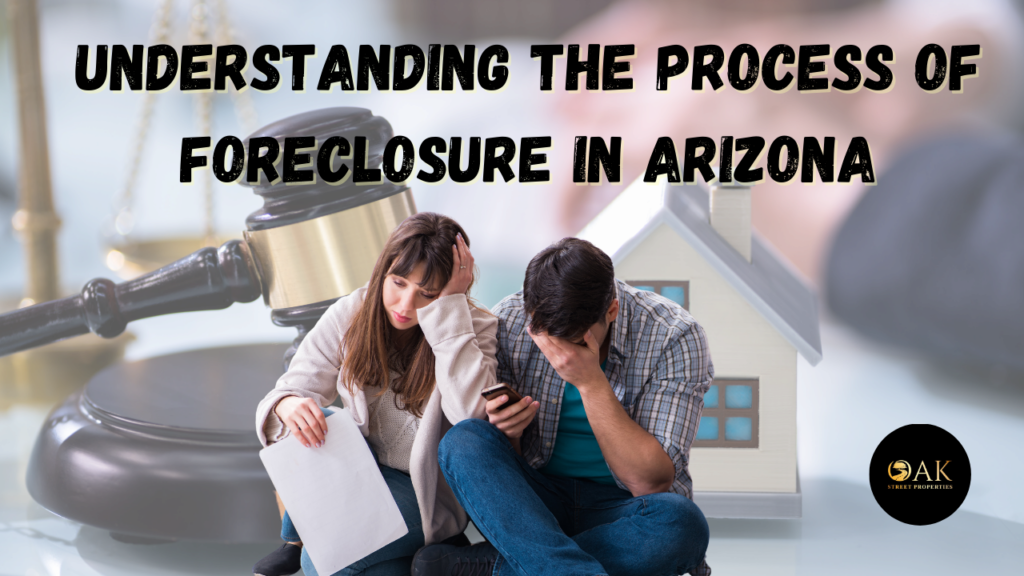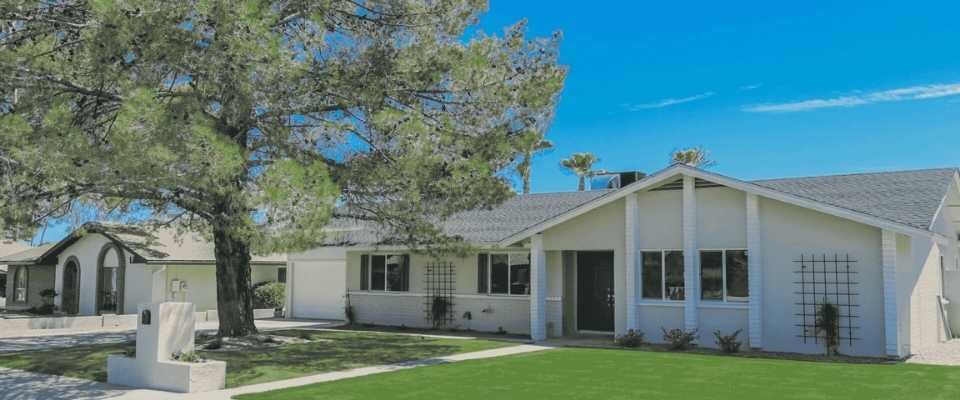
Navigating Foreclosure in Arizona: A Step-by-Step Guide
Before we dive in…
What is foreclosure anyway?
Foreclosure is the legal process that lenders use to take back property securing a loan, generally after the borrower stops making payments. Foreclosure is no fun. But just know that it’s not the end of the world.
When you know how foreclosure in Arizona works, it arms you with the knowledge to make sure you navigate it well and then come out the other end as well as possible.
The Basic Stages of Foreclosure
There are a few stages that are important in the foreclosure process. These foreclosure processes are different in each state. These states have two ways to foreclose a property: judicial sale or power of sale.
In either scenario, foreclosure doesn’t go to court until 3-6 months of missed payments. Usually (but not always), a lender will send out many notices that you are in arrears. They will notify you of overdues or that you are behind in your payments.
Under Judicial Foreclosure:
- Your mortgage lender must file suit in the court system.
- You’ll get a letter from the court demanding payment.
- Assuming the loan is valid, you’ll have 30 days to bring payment to court to avoid foreclosure (and sometimes that can be extended).
- If you don’t pay during the payment period, a judgment will be entered, and the lender can request the sale of your property – usually through an auction.
- Once the property is sold, the sheriff serves an eviction notice and forces you to immediately vacate the property.
Under Power of Sale (or Non-Judicial Foreclosure):
- The mortgage lender serves you with papers demanding payment, and the courts are not required – although the process may be subject to judicial review.
- After the established waiting period has elapsed, a deed of trust is drawn up and control of your property is transferred to a trustee.
- The trustee can then sell your property to the lender at a public auction (notice must be given).
Anyone who has an interest in the property must be notified during either type of foreclosure. For example, any contractors or banks with liens against a foreclosed property are entitled to collect from the proceedings of an auction.
What Happens After a Foreclosure Auction?
After a foreclosure is complete, the loan amount is paid off with the sale proceeds. Sometimes, if the sale of the property at auction isn’t enough to pay off the loan, a deficiency judgment can be issued against the borrower.
A deficiency judgment is where the bank gets a judgment against you, the borrower, for the remaining funds owed to the bank on the loan amount after the foreclosure sale.
Some states limit the amount owed in a deficiency judgment to the fair value of the property at the time of sale, while other states will allow the full loan amount to be assessed against the borrower.
Here’s a great resource that lists the state-by-state deficiency judgment laws, since every state is different.
Understanding Arizona’s Foreclosure Laws
Arizona is a non-judicial foreclosure state, which means that most foreclosures are handled outside of the court system. This can make the process faster and less expensive for lenders, but it also means that homeowners need to be vigilant about their rights and options.
Notice of Default
The foreclosure process in Arizona typically begins with a Notice of Default. This document is recorded with the county recorder’s office and serves as a public notice that the borrower is in default on their mortgage. The borrower then has a specific period, usually 90 days, to cure the default by paying the overdue amounts.
Trustee’s Sale
If the borrower does not cure the default within the specified period, the lender can proceed with a Trustee’s Sale. This involves selling the property at a public auction to the highest bidder. The sale must be advertised in a local newspaper for at least four consecutive weeks before the auction date.
Right of Redemption
In Arizona, there is no statutory right of redemption after a non-judicial foreclosure. This means that once the property is sold at auction, the borrower has no right to reclaim it by paying off the debt. However, in the case of a judicial foreclosure, the borrower may have a redemption period, typically six months, during which they can reclaim the property by paying the full amount of the judgment.
Alternatives to Foreclosure
Foreclosure is not the only option for homeowners facing financial difficulties. There are several alternatives that can help you avoid the negative consequences of foreclosure:
Loan Modification
A loan modification involves changing the terms of your mortgage to make it more affordable. This could include reducing the interest rate, extending the loan term, or even reducing the principal balance. Contact your lender to discuss your options for a loan modification.
Short Sale
A short sale occurs when you sell your home for less than the amount owed on the mortgage. The lender must approve the sale, and you may still be responsible for the remaining balance. However, a short sale can be less damaging to your credit than a foreclosure.
Deed in Lieu of Foreclosure
With a deed in lieu of foreclosure, you voluntarily transfer ownership of your property to the lender in exchange for being released from your mortgage obligations. This option can be less damaging to your credit than a foreclosure and may allow you to negotiate more favorable terms with your lender.
Seeking Professional Help
Navigating the foreclosure process can be complex and stressful. It’s important to seek professional help to ensure that you understand your rights and options. Consider consulting with a foreclosure attorney, a housing counselor, or a real estate professional who specializes in foreclosure properties.
Final Thoughts
Foreclosure is a challenging and emotional experience, but it’s important to remember that you have options. By understanding the foreclosure process in Arizona and exploring alternatives, you can make informed decisions and take steps to protect your financial future. If you’re facing foreclosure, don’t hesitate to reach out for help and support. There are resources available to assist you in navigating this difficult time and finding a solution that works for you.
Generally, it’s best to avoid a foreclosure auction. Instead, call up the bank, or work with a reputable real estate firm like us at Oak Street Properties to help you negotiate discounts off the amount owed to avoid having to carry out a foreclosure in Arizona.
If you have properties that are susceptible to Foreclosure in Phoenix Arizona, experienced investors can help you by negotiating directly with banks to lower the amount you owe in a sale – or even eliminate it, even if your home is worth less than you owe.
Connect with us by calling (480) 637-5500 or through our contact page to have us walk you through the specific process locally in Phoenix Foreclosures
If you need to sell a property near Phoenix, we can help you.
We buy houses in Phoenix AZ like yours from people who need to sell fast.
Give us a call anytime (480) 637-5500 or
fill out the form on this website today! >>
Another Foreclosure Resource For Phoenix AZ HomeOwners:

